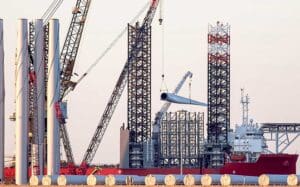In a significant setback for the London Stock Exchange’s global standing, Ashtead, one of Britain’s largest equipment hire groups, has announced plans to shift its primary listing to the United States.
The move deals another blow to London’s efforts to remain attractive to major companies, following a series of high-profile departures in recent years.
Ashtead, which hires out construction equipment and employs more than 25,000 staff worldwide, said the US was the “natural long-term listing venue” for the group. Its rationale is clear: North America is now responsible for the majority of the company’s profits, and its leadership team, corporate headquarters, and the bulk of its workforce are already based there.
The company plans to maintain a secondary listing in the UK as an international business, but the decision to shift its primary listing across the Atlantic underscores investor concerns that London’s allure is weakening. In recent years, firms valued at hundreds of billions of pounds, including British tech champion ARM Holdings and Paddy Power’s owner Flutter, have favoured floating in New York rather than staying tied to their London listings.
Ashtead said it aims to complete the move within the next 12 to 18 months, following consultation with shareholders and a formal vote. The firm’s announcement comes at a time when it expects lower-than-anticipated annual profits due to softness in the local US commercial construction market. Nevertheless, it anticipates a stronger outlook as interest rates begin to ease, making borrowing cheaper for construction projects. Securing a deeper pool of US investors is a key factor behind the move.
Market commentators suggest other motives may also be in play. Dan Coatsworth, an investment analyst at AJ Bell, noted speculation that re-listing stateside could help justify higher pay packages for senior executives—something that has faced pushback under UK governance standards. A $14 million pay package proposed for chief executive Brendan Horgan drew criticism for being “excessive” by British standards, but would be more in line with norms for top-tier US-listed companies.
Ashtead’s shift comes at a time when the British government is attempting to spur investment, with Chancellor Rachel Reeves recently easing self-imposed debt rules to allow for up to £50 billion more borrowing for infrastructure projects. While the company’s decision may not directly alter Ashtead’s domestic investment plans—an Ashtead spokesman insisted UK investment intentions remain unchanged—there is no denying the symbolic weight of the move.
Founded in England in 1947 and listed on the LSE since 1986, Ashtead built its dominance in equipment rental after expanding into the US in 1990. By the early 2000s, it had become one of the largest players in North America. With the next chapter of its corporate journey set to be under US regulatory and investor scrutiny, London will be left to reflect, once again, on how to keep global champions anchored on British soil.






